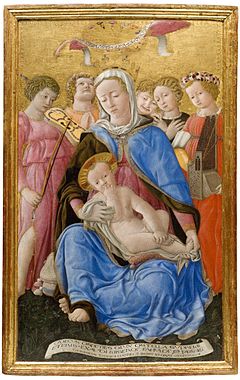
Central idea: The Beatitudes. Doctrine: Christ’s Beatitudes can teach and transform us. Practical application: Purification of heart
To view Lectionary 70 click here.
Central idea: The Beatitudes
Reading 1 Zep 2:3; 3:12-13
Seek the LORD, all you humble of the earth,
who have observed his law;
seek justice, seek humility;
perhaps you may be sheltered
on the day of the LORD’s anger.But I will leave as a remnant in your midst
a people humble and lowly,
who shall take refuge in the name of the LORD:
the remnant of Israel.
They shall do no wrong
and speak no lies;
nor shall there be found in their mouths
a deceitful tongue;
they shall pasture and couch their flocks
with none to disturb them.
- Were we to turn Zephaniah’s prophecy into the form of Christ’s beatitudes, we could say:
- Blessed are those who observe God’s law;
- Blessed are those who seek justice;
- Blessed are those who seek humility;
- Blessed are those who do no wrong;
- Blessed are those who tell no lies;
- For they shall be sheltered from God’s anger and never be disturbed by anyone or anything.
Responsorial Psalm Ps 146:6-7, 8-9, 9-10
R. Blessed the poor in spirit; the kingdom of heaven is theirs!
The LORD keeps faith forever,
secures justice for the oppressed,
gives food to the hungry.
The LORD sets captives free.The LORD gives sight to the blind;
the LORD raises up those who were bowed down.
The LORD loves the just;
the LORD protects strangers.The fatherless and the widow the LORD sustains,
but the way of the wicked he thwarts.
The LORD shall reign forever;
your God, O Zion, through all generations. Alleluia.
- Each of us can ask of ourselves some questions when we see such ancient and perennial claims about God.
- Do I belong to the Lord so that I am one of the persons who can expect favors from him?
- Are these words true for me now? Does the Lord do these things for me?
- Am I looking forward to these words being true for me forever in eternal life?
Reading 2 1 Cor 1:26-31
Consider your own calling, brothers and sisters.
Not many of you were wise by human standards,
not many were powerful,
not many were of noble birth.
Rather, God chose the foolish of the world to shame the wise,
and God chose the weak of the world to shame the strong,
and God chose the lowly and despised of the world,
those who count for nothing,
to reduce to nothing those who are something,
so that no human being might boast before God.
It is due to him that you are in Christ Jesus,
who became for us wisdom from God,
as well as righteousness, sanctification, and redemption,
so that, as it is written,
“Whoever boasts, should boast in the Lord.”
- Because the human race has fallen from God’s friendship and yet still desires beatitude, many men have tried to seize happiness by using their cleverness and violence and to pass on whatever they have gained to their children. Those are the “powerful.” Those are the people “of noble birth.”
- But as Zephaniah puts it, the Lord prefers human beings who know they are “humble and lowly” and who “take refuge in the name of the LORD.”
- This preference does not really exclude anyone, because every human being, despite outward appearances, is lowly and in need of God. The richest person in the world can know this and act accordingly. So can the most powerful.
Gospel Mt 5:1-12A
When Jesus saw the crowds, he went up the mountain,
and after he had sat down, his disciples came to him.
He began to teach them, saying:
“Blessed are the poor in spirit,
for theirs is the kingdom of heaven.
Blessed are they who mourn,
for they will be comforted.
Blessed are the meek,
for they will inherit the land.
Blessed are they who hunger and thirst for righteousness,
for they will be satisfied.
Blessed are the merciful,
for they will be shown mercy.
Blessed are the clean of heart,
for they will see God.
Blessed are the peacemakers,
for they will be called children of God.
Blessed are they who are persecuted for the sake of righteousness,
for theirs is the kingdom of heaven.
Blessed are you when they insult you and persecute you
and utter every kind of evil against you falsely because of me.
Rejoice and be glad,
for your reward will be great in heaven.”
- Every one of us desires to be blessed, that is, to be happy and to receive and possess good things.
- We can be blessed in two ways: (1) by what is given to us by others and (2) by what we receive by our own choices and actions.
- The Catechism instructs us that Christ’s Beatitudes “respond to the desire for happiness that God has placed in the human heart” (CCC 1725).
- In addition, “The Beatitudes teach us the final end to which God calls us: the Kingdom, the vision of God, participation in the divine nature, eternal life, filiation, rest in God” (CCC 1726).
- Further, “The beatitude of eternal life is a gratuitous gift of God. It is supernatural, as is the grace that leads us there.” (CCC 1727)
Doctrine: Christ’s Beatitudes can teach and transform us
- As the Catechism summarizes, “The Beatitudes confront us with decisive choices concerning earthly goods; they purify our hearts in order to teach us to love God above all things” (1728).
- To explain in more depth, “The beatitude we are promised confronts us with decisive moral choices. It invites us to purify our hearts of bad instincts and to seek the love of God above all else. It teaches us that true happiness is not found in riches or well-being, in human fame or power, or in any human achievement—however beneficial it may be—such as science, technology, and art, or indeed in any creature, but in God alone, the source of every good and of all love” (CCC 1723).
- The Catechism then quotes Blessed John Henry Cardinal Newman on our almost spontaneous veneration of money and fame.
All bow down before wealth. Wealth is that to which the multitude of men pay an instinctive homage. They measure happiness by wealth; and by wealth they measure respectability. . . . It is a homage resulting from a profound faith . . . that with wealth he may do all things. Wealth is one idol of the day and notoriety is a second. . . . Notoriety, or the making of a noise in the world—it may be called “newspaper fame”—has come to be considered a great good in itself, and a ground of veneration” (“Saintliness the Standard of Christian Principle,” in Discourses to Mixed Congregations (London: Longmans, Green and Co., 1906) V, 89-90, quoted in CCC 1723).
- Thus, the Beatitudes teach that happiness really consists in the possession of God. And living them transforms us into persons who are like God.
Practical application: Purification of heart
- As the Catechism states, the Beatitude Christ promises us “invites us to purify our hearts of bad instincts and to seek the love of God above all else” (CCC 1723).
- Beatitude, then, is a gift we are promised that requires cooperation on our parts. This bring together the two ways a person can be blessed: (1) by what is given to us by others and (2) by what we receive by our own choices and actions. God is ready to give us Beatitude with our cooperation.
- This means we must stop doing certain things and start doing certain things. The things we must avoid are evil-doings, including our worship of wealth, resort to violence, vainglory, lying, and so on.
- The things we should do are all good deeds, done humbly and with gratitude.
- God helps us purify or hearts and actions through his grace, primarily given to us through the Sacraments.
The Homiletic Directory recommends the following Catechism points and themes for the Fourth Sunday in Ordinary Time:
- CCC 459, 520-521: Jesus a model of the beatitudes for followers
- CCC 1716-1724: call to beatitude
- CCC 64, 716: the poor and humble remnant bear hope of Messiah

Leave a Reply